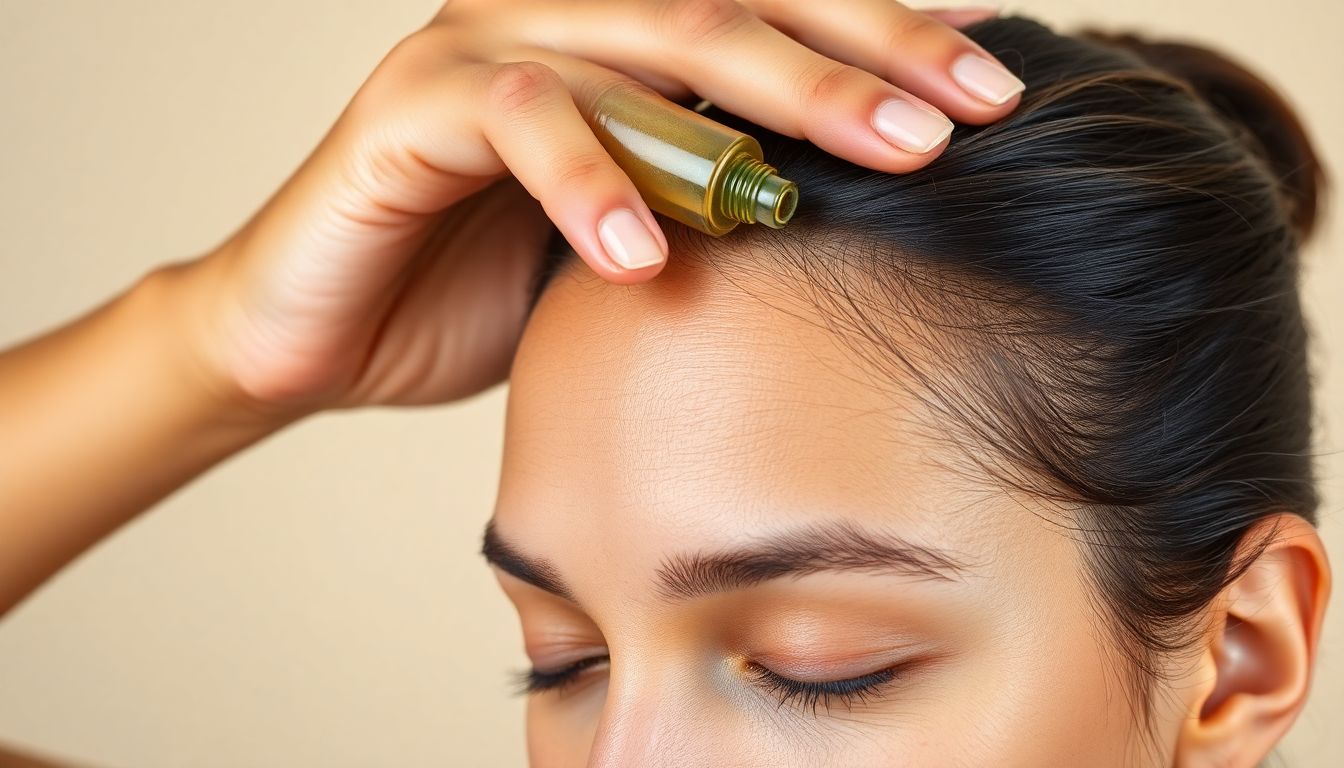Hair Loss Treatment at Home: Safe and Effective Remedies

Hair loss is more common than many think. Studies suggest that about 50 million men and 30 million women in the United States experience some form of hair thinning or loss by the age of 50. The emotional toll of losing hair can be significant, affecting self-esteem and overall mental health. Fortunately, many at-home remedies can help combat this issue, focusing on prevention and natural healing.
Understanding Hair Loss: Causes and Types
Common Causes of Hair Loss
Understanding why hair loss occurs is essential. Several factors contribute to this problem:
- Genetics: Family history often plays a major role.
- Hormonal Imbalances: Changes can lead to thinning hair.
- Stress: Psychological stress can trigger hair loss.
- Nutritional Deficiencies: A lack of key vitamins and minerals can weaken hair.
Research shows that up to 80% of hair loss cases are genetic.
Types of Hair Loss
Different types of hair loss show distinct patterns:
- Androgenetic Alopecia: Also known as male or female pattern baldness, it occurs gradually over time.
- Telogen Effluvium: Often triggered by stress, this type leads to diffuse hair shedding.
- Alopecia Areata: An autoimmune condition causing patchy hair loss.
Common triggers for these types include significant life changes, hormonal shifts, or certain medical conditions.
When to See a Doctor
It’s crucial to recognize when hair loss requires professional help. Look for these signs:
- Rapid hair loss in patches.
- Compliance with home treatments but seeing no improvement.
- Accompanying symptoms like itching or redness.
Consulting a healthcare provider can help identify underlying issues.
Dietary Changes for Hair Health
Nutritional Deficiencies and Hair Loss
Essential vitamins and minerals greatly impact hair growth. Key nutrients include:
- Biotin: Supports healthy hair and may prevent loss.
- Iron: Important for oxygen transport in the blood.
- Zinc: Aids in hair tissue growth and repair.
Research confirms that deficiencies in these nutrients can contribute to hair loss.
Foods to Include in Your Diet
Focus on incorporating the following hair-healthy foods:
- Spinach: Rich in iron and vitamins.
- Eggs: Packed with protein and biotin.
- Berries: High in antioxidants which promote scalp health.
Example meal plan:
- Breakfast: Scrambled eggs with spinach.
- Lunch: Berry smoothie with yogurt.
- Dinner: Lentil salad rich in iron and protein.
Supplements to Consider (with caution)
While supplements like biotin and collagen can offer benefits, consult a healthcare professional before starting. Individual needs vary, and improper use can lead to adverse effects.
Natural Remedies for Hair Growth
Essential Oils for Hair Growth
Certain essential oils are known for promoting hair growth. Consider using:
- Rosemary Oil: Popular for improving scalp circulation.
- Lavender Oil: Known for its calming properties and potential to boost hair growth.
- Peppermint Oil: Can promote hair thickness.
To use, mix a few drops with a carrier oil and massage into the scalp.
Herbal Remedies
Herbs like hibiscus and amla have been traditionally used for hair health. Studies show that these herbs can strengthen hair and promote growth, addressing issues like scalp health.
Scalp Massage Techniques
Regular scalp massages can stimulate circulation. Here’s a simple technique:
- Use fingertips to apply gentle pressure in circular motions.
- Focus on areas with thinning hair.
- Massage for 5–10 minutes daily for best results.
Lifestyle Modifications for Hair Health
Stress Management Techniques
Stress is a significant enemy of healthy hair. Techniques to reduce stress include:
- Meditation: Helps calm the mind.
- Yoga: Combines physical and mental relaxation.
- Regular Exercise: Boosts mood and reduces anxiety.
Studies link stress management with improved hair conditions.
Healthy Sleep Habits
Adequate sleep fosters hair growth. Here are some tips to improve sleep hygiene:
- Maintain a regular sleep schedule.
- Create a calming bedtime routine.
- Limit screen time before bed.
Avoiding Harsh Hair Treatments
Minimize the use of heat styling tools and chemical treatments. These can weaken hair and cause breakage. Opt for natural beauty methods instead.
Maintaining Hair Health: Preventative Measures
Gentle Hair Care Practices
Adopting gentle hair care methods can prevent further damage. Recommendations include:
- Sulfate-Free Shampoos: Less harsh on hair and scalp.
- Conditioners: Use after every wash to retain moisture.
- Detangling: Avoid rough brushing; use wide-tooth combs.
Protecting Hair from Sun Damage
Just as skin needs sun protection, hair does too. Consider using products with UV filters. Wearing hats can provide additional protection during strong sunlight.
Regular Trims
Schedule regular hair trims every 6–8 weeks to prevent split ends. This maintains hair health and appearance.
Conclusion: A Holistic Approach to Hair Loss
Combating hair loss requires a multi-faceted approach. Focus on dietary changes, natural remedies, lifestyle modifications, and preventative measures.
Consistency is key; results may take time. For personalized advice, consult healthcare professionals. Embrace healthy practices, and remember, your journey to healthier hair starts at home.

.webp)

